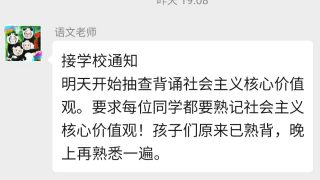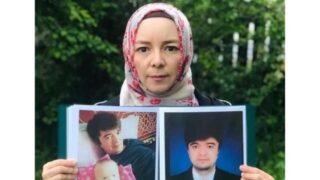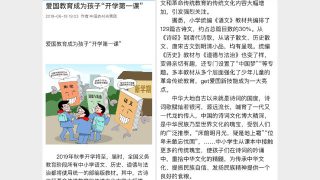Table of Contents
Higher education institutions have long been a focus of CCP’s stability maintenance efforts aimed at suppressing free speech and preventing unrest.
by Shen Xinran


University campuses all over the country have become the primary battlefields in the CCP’s war against any form of dissent and religious beliefs. Teachers and students known to be religious or representing ethnic minority groups, anyone daring to contradict the government, and even foreigners studying or teaching in China have been identified as “dangerous elements” by the regime. They all are subjected to increased surveillance to ensure that they are controlled at all times.
Identifying and reeducating devotees
Since last year, schools and universities throughout China have been using all means possible to pressure religious students into renouncing their faith. Some were even threatened not to receive their academic certificates after graduation if they continued practicing their religions.
A government official from the central province of Henan told Bitter Winter that this year, about 170 students in two local universities were identified as religious, and 130 of them have already been “transformed through education,” i.e., forced into pledging to stop participating in any religious activities.
A document adopted by a university in northeastern China, entitled Study Materials of Ethnic and Religious Knowledge, may give some insight into why the authorities have designated religious students and teachers as targets of intense surveillance. “Resistance against [foreign] infiltration using religion into schools and prevention of mission activities on campuses has a bearing on the consolidation of the Party’s regime, on the major project of cultivating qualified builders and reliable successors of the socialism with Chinese characteristics, and on the prospect and future of the state and nation,” the document reads.
According to the document, “hostile foreign forces attempt to ‘disintegrate’ and ‘westernize’ our country by exploiting religion, […] to vie for populace’s support and ideological territories.” It declares that “foreign forces’ exploitation of religion for infiltration into our country is not a religious issue, but a political one.”
The document emphasizes that any form of the spread of religion or proselytization, establishment of religious activity venues or organizations, and holding religious activities should be banned on campuses. Even clothes with religious symbols or overtones are not allowed. Of course, all teachers are prohibited from promoting religion during classes.
The “bad” professor
During the past few years, quite a few university professors have been purged throughout China for criticizing the government.
Tang Yun, a deputy professor at Chongqing Normal University, was barred from the classroom and stripped of his rank and teaching credentials. His crime? “Making comments injurious to the country’s reputation, acting against political discipline, severely violating the professional ethics as a teacher, and being a bad influence on staff and students at the school,” authorities proclaimed.
Bitter Winter talked to some teachers and students who are familiar with Mr. Tang. According to them, he is continuously controlled by the local State Security Bureau. A few teachers have been reportedly intercepted when attempting to visit Mr. Tang, while the students who invited him for a meal were threatened by Bureau officials to retract the invitation.
“Even walking and talking with him for a period of time that officials may interpret as ‘too long’ can result in questioning and investigation by the State Security Bureau,” said a teacher from Chongqing Normal University.
Travel restrictions have also been imposed on Mr. Tang – he is prohibited from leaving the Chongqing Municipality, even to go to his hometown to visit his mother. For the time being, Mr. Tang can only go to the university’s library, where he is working now.
One of the students said that the student who had reported on Mr. Tang was criticized by many of his peers on campus, but the university administration praised the informant for being “honorable.”
Controlling ethnic minorities and foreigners
In quite a few government documents disclosed on Bitter Winter, students of ethnic origins, especially Uyghurs from Xinjiang, as well as Tibetans, Kazakhs, or Mongolians, are mentioned as targets of surveillance on campuses. Their teachers are asked to collect information on these students and report to their higher-ups about the students’ activities.
As for students and teachers from abroad, schools are required to determine the authenticity of their personal information and watch closely over their activities on campuses, regularly reporting to appropriate authorities. All foreigners are prohibited from setting up their religious groups and activity venues.
All student associations on campuses are also under scrutiny by the CCP, even the virtual ones. This prohibition is primarily aimed at ensuring that no one makes any remarks unfavorable to the government or organizes activities not approved by the state.
Individuals who have ties with overseas NGOs are also deemed “dangerous.” The government calls for monitoring the activities of such organizations, particularly paying attention to the distribution of financial aid to students, monetary incentives to teachers and students to go abroad for training, cofounding schools, joint research projects, organization of forums and seminars, and alike.









